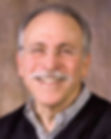What the Hell is Daddying and Why Did I Make THIS Blog?
- Allan Shedlin
- Feb 19, 2020
- 5 min read
Updated: May 23, 2021
by Allan Shedlin, Founder, DADvocacy Consulting Group

Twenty-five years ago I received a warning: “No real man will ever use that word!”
And so, with a degree of cautious anticipation, I conducted my first of 190 (and counting) face-to-face interviews with men about fatherhood. That anticipation was amplified when I discovered my first interviewee, Carlos, was a former all-state linebacker, currently employed as the head of the diesel engine repair shop night shift for the transit district of a major southwestern city. And he very much looked the part of a tough-guy athlete.
My nerves were not eased when I saw the empty beer cans on the floor of his pick-up truck and the gun rack on the back window. But because all my interviews have necessarily been conducted wherever men are willing to give me at least an hour of their time, I climbed in and forged ahead.

While Carlos knew we would be talking about fatherhood, I wondered what his reaction would be when I told him we would be talking about daddying™. I coined that word in 1994 to describe the place where fatherhood and nurturing converge. I wanted to make a distinction between the one-time act of fathering and the lifelong process of daddying.
Daddying requires active involvement and a lifelong commitment to a child’s physical, emotional, social, intellectual, creative, and moral/spiritual well-being. Daddying roles may also be played by other significant men in kids’ lives, including but not limited to granddads, uncles, older brothers, teachers, coaches, and mentors.
As I remembered the warning I received a few months earlier, I wondered whether Carlos would open the door of the pick-up and, upon hearing the word daddying, tell me to leave or even shove me out. But something quite surprising happened – the word itself seemed to give him permission to release a tenderness that surprised him just like it has most of the men I’ve interviewed. Indeed, that response has been the case in every one of my interviews with fathers, 16 to 104 years old, across all socio-economic, ethnic, and religious groups from 20 different countries.
The stereotype that men won't use the word "daddying" has been put to rest.
The second stereotype I’ve debunked is that “men don’t talk, and certainly not about anything that has to do with feelings or emotions.” This is simply false. In virtually all my interviews – as well as in myriad informal conversations I’ve had about daddying – talking about their experiences as a dad, granddad, son, or grandson prompts men to pull their finger from an imagined emotional dike. This is followed by a welcome release of feelings they’re eager to talk about.
This flood of pent-up feelings has too often included a soulful sadness that’s affected me in a profound way – one that compels me to do whatever I can to assuage the expressed pain. I’ve referred to this sadness as the “bookends of daddy yearning.” One end is a yearning that our fathers had been more engaged in our lives, and the other is a yearning that we were more involved with our own children.
This quarter-century compulsion has driven me to help fathers, in whatever ways I can, assuage their daddy yearning and become the dads they want to be.
By launching the Daddying blog, I hope I’ve found yet another way to help.
Although my own childhood included a wish that my father had been more present physically and emotionally in my life, my experiences as a dad and granddad have taught me that one is not condemned to continue this cycle of sadness and daddy yearning. As a matter of fact, I’ve experienced the opposite.

I’ve reached the apex of parenting, where nurturing my children and grandchildren is also nourishing to me.
Having dedicated the past 25 years to working with dads, granddads, and father figures in a variety of settings (Head Start programs, nursery through high schools, prisons, Native American pueblos, veterans organizations, international organizations, corporations, and professional associations), speaking about my work, and conducting workshops at major conferences, writing in the popular and professional press, as well as giving interviews to print and broadcast media, it felt time to get over my reluctance to write it all down.
As I’ve pondered what the Daddying blog might look like, I’ve also wondered whether there’s enough of an audience for what I and my DADvocacy Consulting Group (DCG) colleagues have to say and whether the timing is right.
Given that you’re here reading this inaugural post, clearly, the answer to both questions is a resounding yes.
After many years of the inadvertent social movement I called the Daddying Movement in a 2008 NY Times/Hearst commentary distributed worldwide, it feels like we’ve passed the tipping point of greater acceptance of dads as capable co-parents rather than babysitters or buffoonish “understudies.” In fact, research grows by the day proving that greater dad involvement has many health and other benefits for both father and child.
And our seismic social evolution continues, as it must, alongside a well-established women’s movement.

Another persuasive reason for launching the Daddying blog now is because with more areas of life feeling beyond our control, on a planet that seems to be spinning faster and less steadily on its axis, and where the pace of change tests our ability to adapt, the things over which we do have some control take on greater importance. For many of us, parenting is one of those things.
And finally, there is a critical mass of interest in – and an increased willingness to face – a status quo in which things are just not working well enough in the greater context of our daily lives; that something basic is awry that keeps us from realizing our fullest potential, individually and collectively.
In addition to hosting commentaries, personal experiences, and other creative expressions from my diverse group of DCG and DADvocate/DADvisory team colleagues, our Daddying blog will invite a variety of parenting experts and guest bloggers. Dads, moms, granddads, and others who play fatherly roles will share their ideas and provoke us in ways we hope will encourage us all to reflect about the parent we want to be (and our kids need us to be) and to be mindful and intentional of becoming that dad.
So, welcome to Daddying!
To start, we plan to publish new posts (at least) every other Wednesday. If you’re interested in guest-blogging for us, let us know. And, as always, please feel free to reach out to us on our website, Twitter, or Facebook with any questions or comments.
Daddy on!

Allan Shedlin has devoted his life’s work to improving the odds for children and families. He has three daughters, a “bonus” son, five grandchildren, and three “bonus” grandchildren. Trained as an educator, Allan has alternated between classroom service, policy development, and advising. He’s taught from graduate school “up to” nursery school in NY, NJ, and CT. He’s taught special education students as well as gifted children. After eight years as principal of the elementary school he attended as a student in NY City, Allan founded the National Elementary School Center. In 10 years at its helm, he served as an advisor to President Reagan’s Secretary of Education and several state school superintendents and independent school associations. He began writing in the 1980s about education and parenting for numerous major news outlets and education trade publications, as well as appearing on radio and TV. He also was invited to be an advisor to President Barack Obama’s Office of Faith-based and Neighborhood Partnerships on its fatherhood initiative. In 2008, he founded REEL Fathers in Santa Fe, NM, and still serves as president emeritus. In 2017, Allan founded the DADvocacy Consulting Group. In 2018, he launched the DADDY Wishes Fund and Daddy Appleseed Fund. He earned his elementary and high school diplomas from NYC’s Ethical Culture Schools, his BA at Colgate University, his MA at Columbia University’s Teachers College, and an ABD at Fordham University. But he considers his D-A-D the most important “degree” of all.










